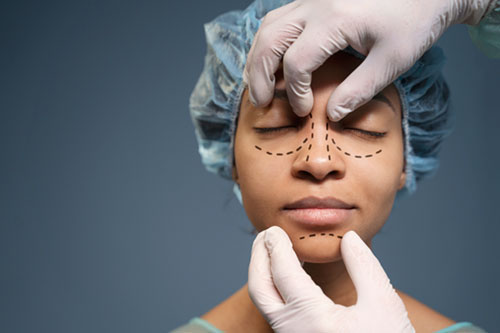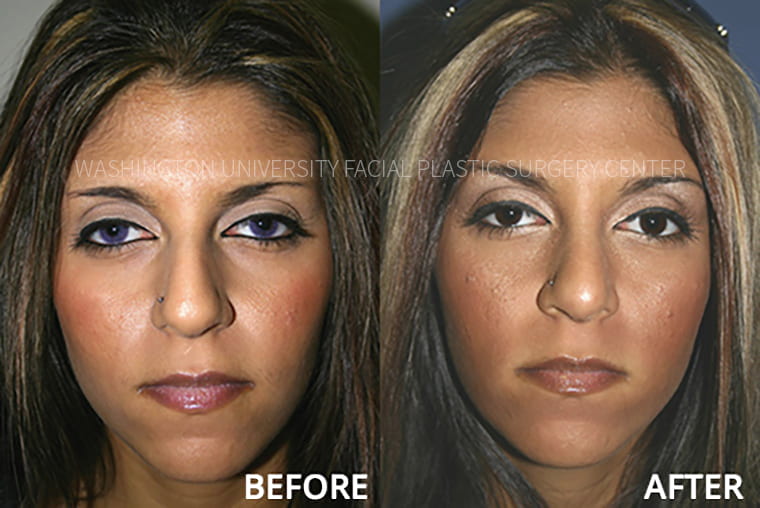Facelift Rancho Cucamonga: Smooth Wrinkles and Tighten Up Skin for a Younger Appearance
Facelift Rancho Cucamonga: Smooth Wrinkles and Tighten Up Skin for a Younger Appearance
Blog Article
Investigating the Emotional and Social Elements That Drive People to Consider Plastic Surgery as a way of Renovation
The decision to pursue plastic surgery commonly prolongs past mere aesthetics, linking with emotional and social characteristics that merit extensive examination. Elements such as self-confidence, prevalent societal charm standards, and the pervasive impact of social media converge to form individual motivations for medical improvement. As these influences become progressively popular, understanding the underlying psychological and social contexts is crucial. What remains to be discovered is the extensive impact these variables have not only on personal identification but also on wider societal standards and values surrounding appeal and acceptance.
The Role of Self-confidence
Self-esteem substantially influences an individual's decision to pursue plastic surgery. Individuals with reduced self-confidence commonly view themselves in a negative light, bring about feelings of inadequacy concerning their physical appearance. This adverse self-perception can drive them to look for surgical interventions as an approach of boosting their self-image. The desire for improvement in one's appearance is frequently connected to a belief that such adjustments will boost their general self-respect and confidence.

Inevitably, the function of self-confidence in the decision-making process regarding plastic surgery highlights the intricate interplay between body photo, personal complete satisfaction, and psychological health. Comprehending this connection is critical for health care experts to make certain that patients are making informed decisions rooted in practical expectations and psychological well-being.
Societal Charm Requirements
Influenced by pervasive media portrayals and cultural narratives, societal charm standards play a critical role fit people' assumptions of their own bodies. These requirements are usually characterized by an idealized kind of elegance that stresses qualities such as slimness, symmetry, and youthfulness. As these perfects are continued through numerous channels, consisting of television, film, and advertising, people often internalize these messages, leading to discontentment with their natural look.
The implications of these social standards extend beyond aesthetic choices; they can impact self-esteem, psychological health, and social partnerships. People that view themselves as disappointing these criteria may experience feelings of inadequacy, prompting a desire for cosmetic surgery as a means of attaining social authorization. This quest is usually sustained by the belief that complying with these ideals will improve not only physical look however also social standing and personal gratification.

Impact of Social Media
The impact of societal appeal requirements is further amplified by the increase of social networks platforms, where curated images and idealized representations of elegance are ubiquitous. Individuals are constantly subjected to filtered and modified photos, which usually depict unattainable physical features. This direct exposure grows a society of contrast, leading individuals to examine their own look against these usually impractical criteria.
Social media influencers and stars often advertise cosmetic treatments, normalizing the notion that surgical enhancements are a sensible ways for accomplishing social ideals (plastic surgery rancho cucamonga). The presence of these improvements can develop a perception that undergoing cosmetic surgical procedure is a common technique, consequently influencing people to take into consideration similar interventions as a pathway to enhanced self-worth and social acceptance
Furthermore, the interactive nature of social media permits prompt comments with sort and comments, additionally strengthening the need to conform to prominent beauty criteria. Such communications can exacerbate sensations of insufficiency and drive people towards plastic surgery as a way of obtaining validation. Inevitably, social media plays a pivotal function in forming assumptions of beauty, which dramatically affects the decision-making processes bordering cosmetic surgical treatment.

Social Viewpoints on Appearance
Across various cultures, understandings of appearance are deeply rooted in historic, social, and financial contexts, shaping individuals' sights on elegance and desirability. In several cultures, appearance works as a significant marker of identity, influencing social standing, expert opportunities, and individual relationships. As an example, in some cultures, light skin is usually related to wide range and benefit, while others may idealize darker skin tones as symbols of strength and authenticity.
In addition, traditional charm requirements are frequently continued with cultural stories, media representations, and household influences, leading to differing ideals across various regions (plastic surgery rancho cucamonga). In Western societies, the emphasis on young people and physical conditioning typically drives individuals towards cosmetic improvement, while in specific Eastern cultures, more refined changes straightened with a fantastic read conventional appearances may be preferred
Globalization and the spreading of digital media have actually even more complicated these characteristics, creating a hybridization of beauty suitables that transcends geographical boundaries. As individuals click to find out more progressively browse these social stories, the pressure to satisfy details look requirements can bring about the need for plastic surgery, mirroring a complex interaction of cultural worths and personal aspirations. Understanding these cultural perspectives is necessary in dealing with the inspirations behind cosmetic surgical procedure considerations.
Emotional Influences of Aesthetic Surgery
Several people seeking plastic surgery report experiencing profound emotional influences that can considerably modify their self-perception and emotional wellness - plastic surgery rancho cucamonga. The wish for physical improvement usually stems from underlying concerns such as reduced self-esteem, body dysmorphic disorder, or societal stress concerning appeal standards. For some, the immediate post-operative phase can cause a momentary increase in self-confidence and fulfillment with their look, fostering a sense of empowerment
Nonetheless, these positive sensations may not be withstanding. Research study indicates that while some clients experience boosted self-worth, others might encounter heightened anxiety or anxiety if their assumptions are not met. This disparity can develop from unrealistic perfects bolstered by media depiction and social narratives surrounding charm.
Moreover, the psychological implications of plastic surgery prolong past the person. Relationships with friends and family may be stressed as social dynamics change, resulting in feelings of seclusion or alienation. Eventually, the mental impacts of plastic surgery are complicated and multifaceted, requiring cautious factor to consider by both potential clients and doctor to make sure educated decision-making and realistic assumptions.
Verdict
In final thought, the choice to go after plastic surgery is significantly influenced by get redirected here a mix of self-confidence issues, societal appeal standards, and cultural point of views on appearance. The pervasive reach of social media further intensifies these pressures, promoting unrealistic ideals that people commonly make every effort to achieve. Comprehending these social and emotional elements is important for addressing the inspirations behind cosmetic surgical treatment, highlighting the need for a more nuanced conversation bordering elegance and self-acceptance in modern society.
The choice to go after cosmetic surgery often prolongs beyond plain aesthetic appeals, linking with social and mental dynamics that merit comprehensive examination. Ultimately, social media plays an essential duty in forming assumptions of appeal, which dramatically affects the decision-making procedures surrounding cosmetic surgery.
As individuals progressively browse these cultural stories, the pressure to adjust to specific look criteria can lead to the need for cosmetic surgical procedure, mirroring an intricate interaction of individual aspirations and social values.In verdict, the choice to go after cosmetic surgical procedure is considerably affected by a combination of self-worth problems, societal appeal requirements, and cultural point of views on look. Recognizing these mental and social elements is crucial for dealing with the motivations behind cosmetic surgical treatment, highlighting the need for a much more nuanced conversation surrounding elegance and self-acceptance in modern culture.
Report this page